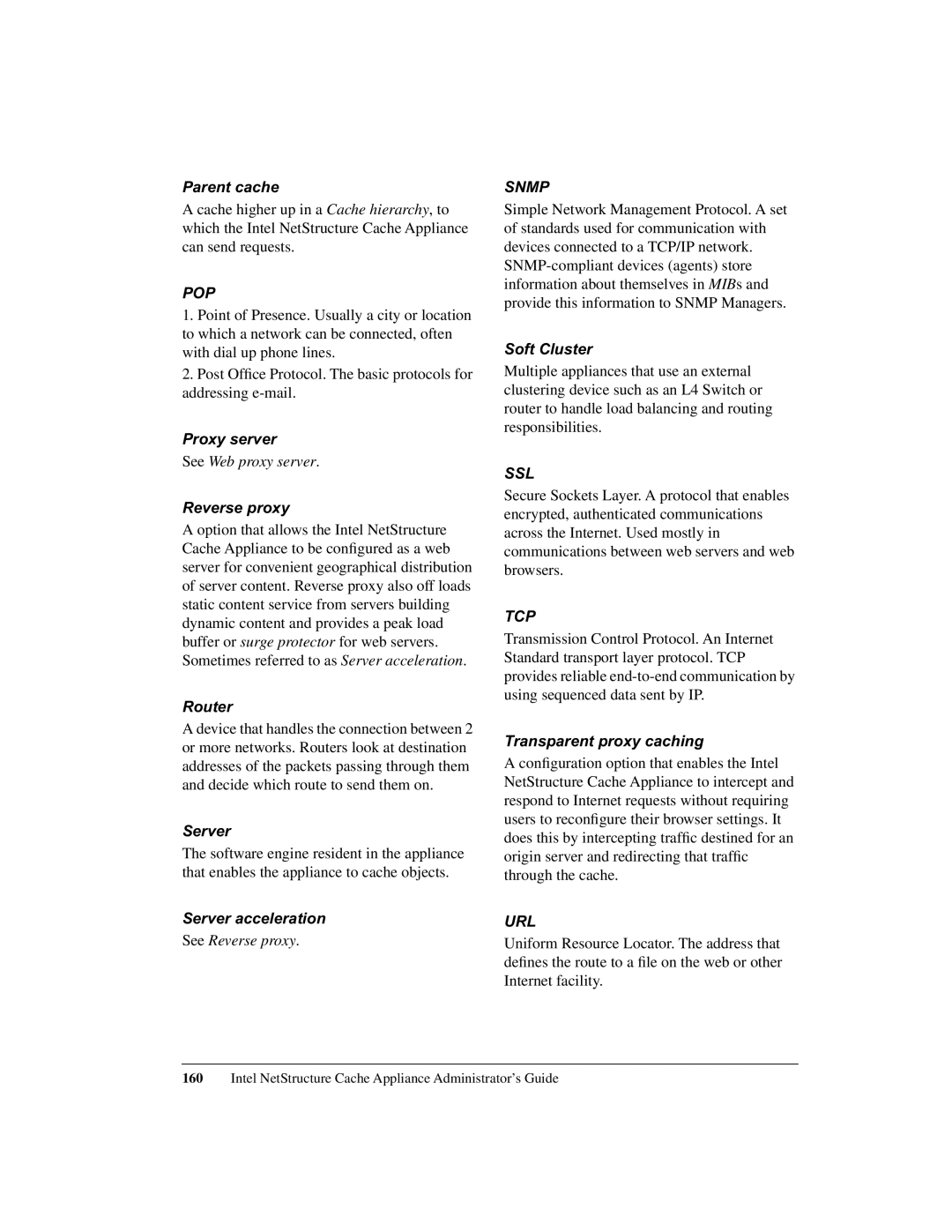Parent cache
A cache higher up in a Cache hierarchy, to which the Intel NetStructure Cache Appliance can send requests.
POP
1.Point of Presence. Usually a city or location to which a network can be connected, often with dial up phone lines.
2.Post Office Protocol. The basic protocols for addressing
Proxy server
See Web proxy server.
Reverse proxy
A option that allows the Intel NetStructure Cache Appliance to be configured as a web server for convenient geographical distribution of server content. Reverse proxy also off loads static content service from servers building dynamic content and provides a peak load buffer or surge protector for web servers. Sometimes referred to as Server acceleration.
Router
A device that handles the connection between 2 or more networks. Routers look at destination addresses of the packets passing through them and decide which route to send them on.
Server
The software engine resident in the appliance that enables the appliance to cache objects.
Server acceleration
See Reverse proxy.
SNMP
Simple Network Management Protocol. A set of standards used for communication with devices connected to a TCP/IP network.
Soft Cluster
Multiple appliances that use an external clustering device such as an L4 Switch or router to handle load balancing and routing responsibilities.
SSL
Secure Sockets Layer. A protocol that enables encrypted, authenticated communications across the Internet. Used mostly in communications between web servers and web browsers.
TCP
Transmission Control Protocol. An Internet Standard transport layer protocol. TCP provides reliable
Transparent proxy caching
A configuration option that enables the Intel NetStructure Cache Appliance to intercept and respond to Internet requests without requiring users to reconfigure their browser settings. It does this by intercepting traffic destined for an origin server and redirecting that traffic through the cache.
URL
Uniform Resource Locator. The address that defines the route to a file on the web or other Internet facility.
160Intel NetStructure Cache Appliance Administrator’s Guide
